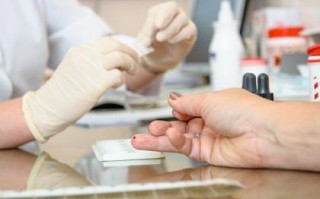背景: 他汀类药物和PCSK9抑制剂均可降低血液中的低密度脂蛋白胆固醇(LDL-C)水平,以降低发生心血管事件的风险。 为了评估这两种降脂疗法的代谢效应之间的潜在差异,我们对大型的他汀类药物试验进行了详细的脂质和代谢物谱分析,并将结果与作为天然试验的PCSK9的遗传抑制作用进行了比较。
方法: 228 circulating metabolic measures were quantified by nuclear magnetic resonance spectroscopy, including lipoprotein subclass concentrations and their lipid composition, fatty acids, and amino acids, for 5,359 individuals (2,659 on treatment) in the PROspective Study of Pravastatin in the Elderly at Risk (PROSPER) trial at 6-months post-randomization. The corresponding metabolic measures were analyzed in eight population cohorts (N=72,185) using PCSK9 rs11591147 as an unconfounded proxy to mimic the therapeutic effects of PCSK9 inhibitors.
Results: Scaled to an equivalent lowering of LDL-C, the effects of genetic inhibition of PCSK9 on 228 metabolic markers were generally consistent with those of statin therapy (R 2=0.88). Alterations in lipoprotein lipid composition and fatty acid distribution were similar. However, discrepancies were observed for very-low-density lipoprotein (VLDL) lipid measures. For instance, genetic inhibition of PCSK9 had weaker effects on lowering of VLDL-cholesterol compared with statin therapy (54% vs. 77% reduction, relative to the lowering effect on LDL-C; P=2x10-7 for heterogeneity). Genetic inhibition of PCSK9 showed no significant effects on amino acids, ketones, or a marker of inflammation (GlycA) whereas statin treatment weakly lowered GlycA levels.
Conclusions: Genetic inhibition of PCSK9 had similar metabolic effects to statin therapy on detailed lipid and metabolite profiles. However, PCSK9 inhibitors are predicted to have weaker effects on VLDL lipids compared with statins for an equivalent lowering of LDL-C, which potentially translate into smaller reductions in cardiovascular disease risk.30524137







还木有评论哦,快来抢沙发吧~